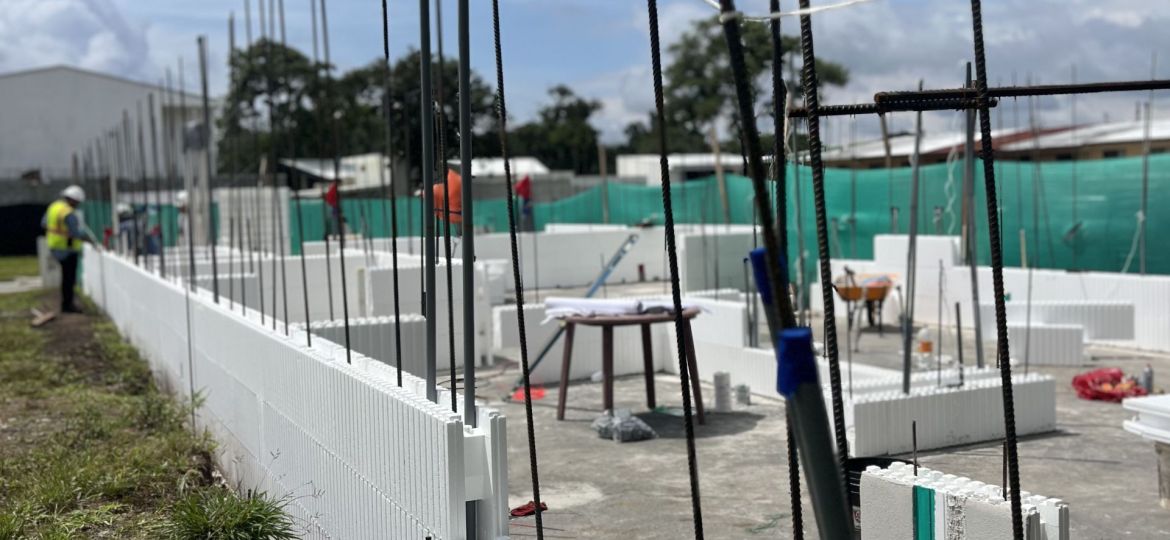
Sustainability is no longer an option in construction—it is a necessity. As the demand for eco-friendly and energy-efficient buildings grows, innovative materials like Expanded Polystyrene (EPS) panels are redefining the industry. These advanced building components not only offer superior insulation and durability but also align with the Blue Flag Ecological Program, a prestigious certification that recognizes environmentally responsible construction practices.
What is the Blue Flag Ecological Program?
The Blue Flag Ecological Program is an internationally recognized initiative that promotes sustainability across different sectors, including construction. This certification is awarded to projects that adhere to strict environmental guidelines, focusing on resource conservation, waste reduction, and energy efficiency. By meeting these standards, builders contribute to reducing their ecological footprint while ensuring long-term sustainability.
EPS Panels: A Key to Sustainable Construction
EPS panels have emerged as a game-changer in modern construction, offering a range of benefits that support sustainable building initiatives. Their lightweight structure, energy efficiency, and minimal waste production make them a preferred choice for eco-conscious developers. Let’s explore how EPS panels contribute to sustainability and align with the Blue Flag Ecological Program:
1. Energy Efficiency and Thermal Insulation
EPS panels provide exceptional thermal insulation, reducing the need for excessive heating or cooling. This results in significant energy savings and lower carbon emissions, making buildings more sustainable and cost-effective over time.
2. Waste Reduction and Clean Construction
Traditional construction methods generate substantial waste, increasing environmental impact. EPS panels, however, allow for precise, modular construction, minimizing material waste and ensuring a cleaner worksite. This aligns with the Blue Flag Ecological Program’s goal of promoting responsible resource management.
3. Durability and Structural Integrity
EPS panels are designed to withstand extreme weather conditions, ensuring long-lasting structural integrity. Their durability reduces the need for frequent renovations or repairs, further supporting sustainable building principles.
4. Water Conservation and Environmental Protection
The construction process with EPS panels requires less water compared to traditional methods. Additionally, the material does not degrade or release harmful chemicals into the environment, preserving local ecosystems and maintaining water quality standards.
5. Carbon Footprint Reduction
By improving energy efficiency and reducing waste, EPS panel construction lowers the overall carbon footprint of a project. This contributes to the broader environmental goals set by sustainability programs like Blue Flag, reinforcing responsible construction practices.
EPS Homes and the Blue Flag Certification
At OKO HAUSEN, we are proud to build homes that not only meet modern design and functionality standards but also comply with sustainability programs like Blue Flag. Our projects are evaluated based on their eco-friendly approach, energy performance, and responsible use of resources. By using EPS panels, we ensure that each home we construct contributes to a greener, more sustainable future.
Building a Greener Tomorrow
The future of construction lies in materials and methods that prioritize sustainability. EPS panels, with their outstanding insulation properties, structural durability, and minimal environmental impact, are at the forefront of this transformation. By integrating them into construction projects, developers and homeowners can meet the Blue Flag Ecological Program’s standards while enjoying the benefits of an energy-efficient, high-quality home.
Are you ready to build sustainably? Explore how EPS panel technology can revolutionize your next project and contribute to a cleaner, greener world.
